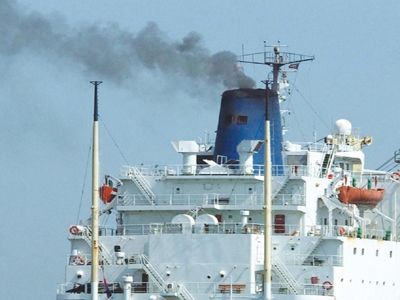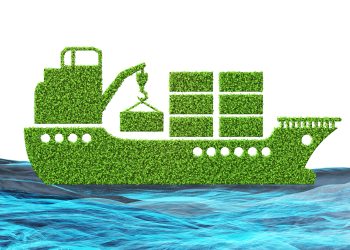European Environment Agency Technical report
The Environment Agency (EEA), supported by its European Topic Centre on Air Pollution and Climate Change Mitigation (ETC/ACM) has prepared a Techincal Report on the impact of international shipping on European air quality and climate forcing. Due to its dependence on fossil fuel combustion and the fact that it is one of the least regulated anthropogenic emission sources, emissions from the marine transport sector contribute significantlyto air pollution and climate change.
Key finding of the report focus on the importance of emissions compared to other sectors;present and future air quality issues; and, the contribution of the sector to present day and future climate forcing. Emissions from maritime transport in European waters constitute a significant share of worldwideship emissions of air pollutants and greenhouse gases.
The sector’s environmental impact is significant as emissions such as carbon dioxide (CO2), nitrogenoxides (NOX), sulphur dioxide (SO2) and particulate matter (PM2.5) from shipping occurring in European waters can contribute up to 10-20 % of overall worldwide shipping emissions.
When considering all ship traffic from national and international shipping arriving or departing from EU-27 ports the contribution can be up to 30 % for CO2.
This report also shows that the number of ships registered in the EU-27, combined with ships owned by European companies but registered in third countries, is substantial. In 2011, about 19 %of the world merchant vessel fleet above 100 grosstonnage (GT) were registered in European countries.
When taking into account ships registered abroadby European ship owners the European share of theglobal merchant fleet will be higher. Emissions of nitrogen oxides from international maritime transport in European waters are projected to increase and could be equal toland‑based sources by 2020 onwards.
The report includes a review of recently developed scenario studies on ship emissions and shows that NOX emissions could be equal to land-based emissions sources from 2020 onwards.
SO2 emissions in European waters will continue to decrease further from 2020 onwards due to legislation on the sulphurcontent in fuel. It is expected that this will also lead to a decrease in emissions of PM2.5.
Shipping emissions can contribute significantly to local air quality problems in Europe, but the pan‑European knowledge and observation base needs to be improved to provide a more complete picture.
You may download the report by clicking here
Source: EEA






























































